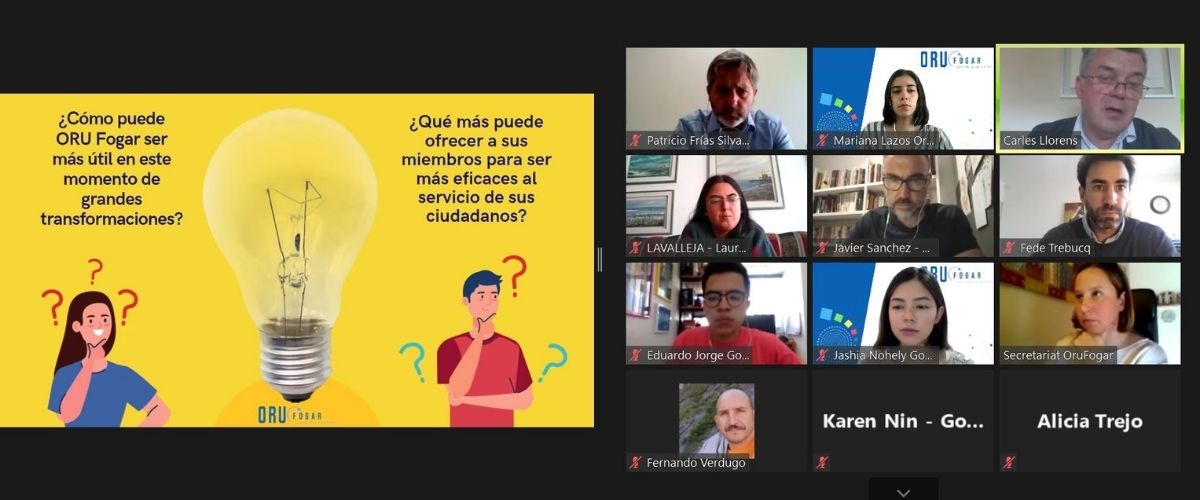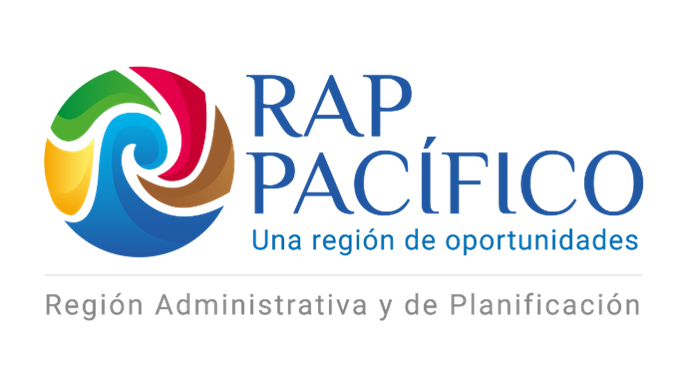Future workshop "ORU Fogar 2030"

On July 6, in virtual format and in Spanish, the “ORU Fogar 2030” Future Workshop was held in order to discuss the future of ORU Fogar, with the participation of the teams from the most involved regions in the operation of the network. The exercise, which will also be carried out in French on September 23, should have been carried out at the meeting of the Azores Bureau in early 2020. On that occasion, a wide space was planned to talk about how ORU Fogar approached this decade (2020-2030) as a key to development. It was not possible because of the pandemic and, now, in virtual format, an exercise was carried out to -basically- answer two questions: How can we be more useful? What else can we offer our members?
In the prologue to the exercise, the history of ORU Fogar was briefly reviewed. It was seen how it was born to make the voice of the regions heard in the global debate. Thus, in this initial stage, ORU Fogar worked intensively on all the dynamics called Post-2015, meant to allow the 2030 Agenda and the SDGs to be approved in September 2015. The years 2014-2019 are years of structuring and equipping ourselves with a solid communication platform. It participates in all the agendas: ODS, New Urban Agenda and Paris Agreement, but there is a desire to become a platform of services to the regions. The period 2019-2021 has been the one that the pandemic forced ORU Fogar to be virtual and, from there ... the future ...
A positive assessment of the work of the network was distilled from the entire exercise, as well as a sense of pride in being part of it. Beyond the exercise of being the voice of the regions and defending the role of the regions in global governance, the participants valued the exchange that ORU Fogar allows, highlighting the possibility of learning about regional public management experiences from other geographies. The usefulness of having a wide information platform was also valued. A platform that becomes, at the same time, a showcase to show the activities in which the members stand out. Several participants also highlighted that being part of the dynamics of the network has given them access to the international arena, has helped them to shape their regionalist discourse, to have a global perspective and, above all, has empowered them in the face of their central government.
It was not, however, a complacent exercise. The ability to bond and listen to each other was valued. However, a greater horizontal dynamic was lacking, with greater internal communication and interconnection. The need to energize the working groups and to generate spaces for participation was pointed out. All this to develop cooperation mechanisms between regional governments and joint work dynamics.
The need for the organization to have more human and financial resources was pointed out. There was also space to talk about improving funding, ensuring member commitment, but also exploring other funding systems beyond contributions from the regions.
We spoke of the need to target countries where the organization has a limited presence, particularly European countries. The presence of European organizations of regions, it was said, must be an excuse for ORU Fogar to be more present in Europe. The need to monitor the most peripheral partners of the network was also pointed out.
Various participants pointed out that the Bureau meetings should allow a better evaluation of the annual plans. In this sense, there was also agreement in the sense that a general strategic plan is needed to define what the long-term direction of the organization is. This plan should better set the direction of the organization and be a roadmap for all members.
The workshop used an innovative and very agile format. Adapted to the virtual connection, it allowed moments of relaxation and a very open debate. The ORU Fogar Secretariat undertook to draw up some conclusions. These must be raised to the ORU Fogar Bureau, which must be held in November and must be able to be converted into an eventual strategic plan.







































































